BMW iX1 vs VW ID.4 - Differences and prices compared
Compare performance (313 HP vs 340 HP), boot space and price (41800 £ vs 34600 £ ) at a glance. Find out which car is the better choice for you – BMW iX1 or VW ID.4?
Costs and Efficiency:
Price and efficiency are key factors when choosing a car – and this is often where the real differences emerge.
VW ID.4 has a evident advantage in terms of price – it starts at 34600 £ , while the BMW iX1 costs 41800 £ . That’s a price difference of around 7256 £.
In terms of energy consumption, the advantage goes to the VW ID.4: with 15.60 kWh per 100 km, it’s slight more efficient than the BMW iX1 with 15.80 kWh. That’s a difference of about 0.20 kWh.
As for electric range, the VW ID.4 performs a bit better – achieving up to 569 km, about 106 km more than the BMW iX1.
Engine and Performance:
Power, torque and acceleration say a lot about how a car feels on the road. This is where you see which model delivers more driving dynamics.
When it comes to engine power, the VW ID.4 has a hardly perceptible edge – offering 340 HP compared to 313 HP. That’s roughly 27 HP more horsepower.
In acceleration from 0 to 100 km/h, the VW ID.4 is minimal quicker – completing the sprint in 5.40 s, while the BMW iX1 takes 5.60 s. That’s about 0.20 s faster.
There’s no difference in top speed – both reach 180 km/h.
There’s also a difference in torque: VW ID.4 pulls distinct stronger with 679 Nm compared to 494 Nm. That’s about 185 Nm difference.
Space and Everyday Use:
Beyond pure performance, interior space and usability matter most in daily life. This is where you see which car is more practical and versatile.
Both vehicles offer seating for 5 people.
In curb weight, BMW iX1 is minimal lighter – 1940 kg compared to 1975 kg. The difference is around 35 kg.
In terms of boot space, the VW ID.4 offers slight more room – 543 L compared to 490 L. That’s a difference of about 53 L.
In maximum load capacity, the VW ID.4 performs hardly perceptible better – up to 1575 L, which is about 80 L more than the BMW iX1.
When it comes to payload, VW ID.4 a bit takes the win – 551 kg compared to 495 kg. That’s a difference of about 56 kg.
Who comes out on top?
Overall, the VW ID.4 shows itself to be wins the duel decisively and secures the title of DriveDuel Champion.
It convinces with the more balanced overall package and proves to be the more versatile choice for everyday use.
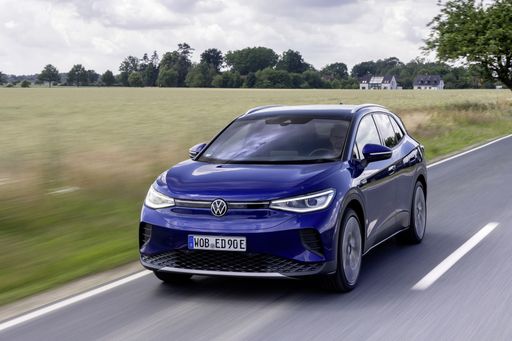
VW ID.4
Costs and Consumption
View detailed analysis
Engine and Performance
View detailed analysis
Dimensions and Body
View detailed analysis
BMW iX1
The BMW iX1 wraps BMW's electric ambition into a compact SUV package that feels unexpectedly premium, with sharp handling and a crisp, modern cabin that keeps the driver in charge. It's ideal for buyers who want a stylish, quiet daily driver with useful practicality and tech-savvy touches — plus enough character to make the commute feel less like a chore and more like a short joyride.
details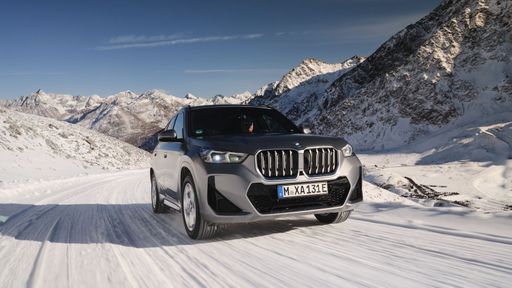
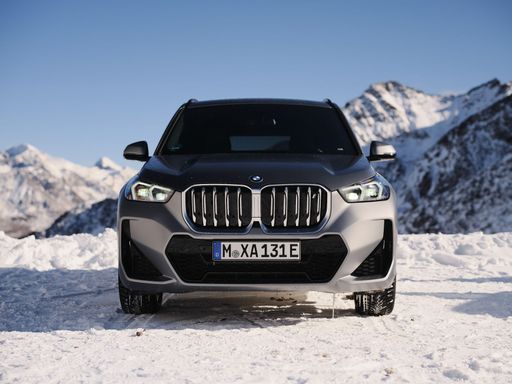
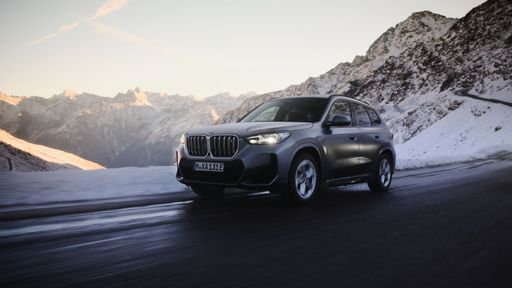
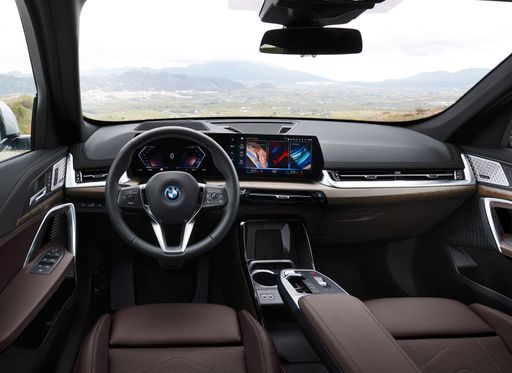
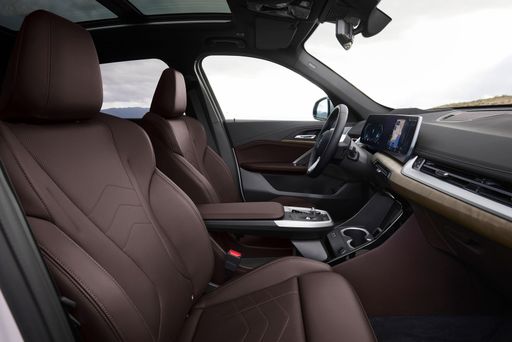
VW ID.4
The VW ID.4 is a calm, roomy electric SUV that turns everyday driving into a quietly confident experience, its practical packaging and smooth manners tailored perfectly for family life. Volkswagen's solid build and intuitive interior tech mean you get electric practicality without the sci‑fi theatrics, making the ID.4 a sensible, surprisingly likable choice for most buyers.
details
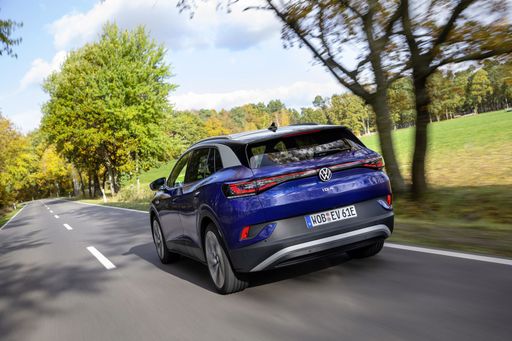
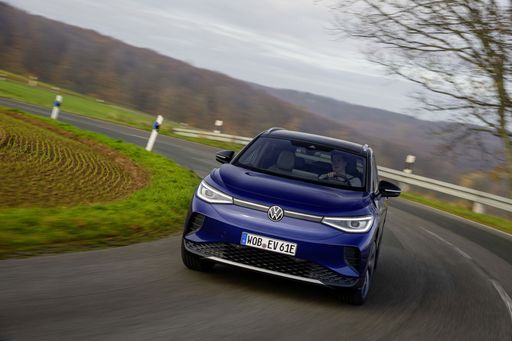
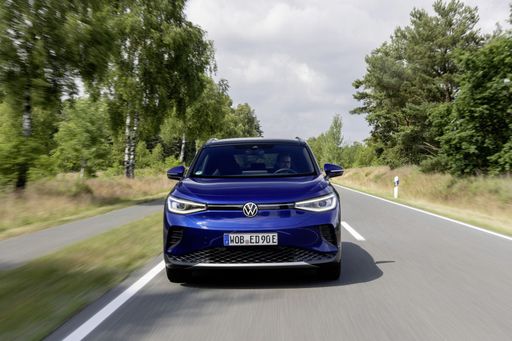
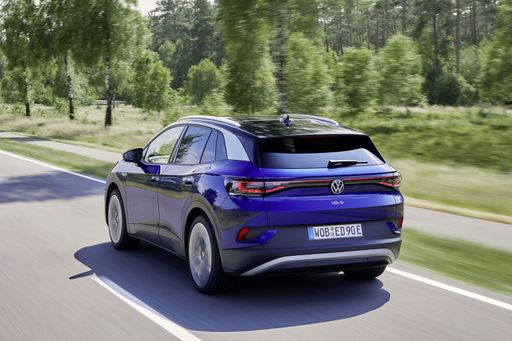

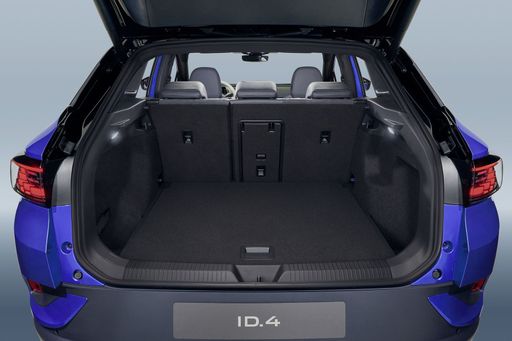
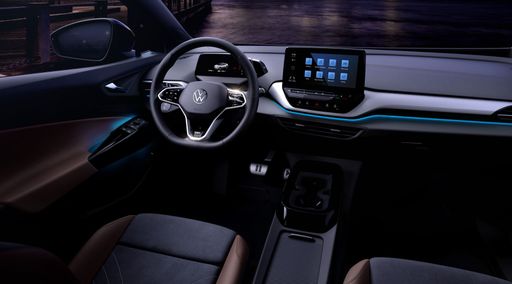
Costs and Consumption |
|
|---|---|
|
Price
41800 - 54600 £
|
Price
34600 - 47200 £
|
|
Consumption L/100km
-
|
Consumption L/100km
-
|
|
Consumption kWh/100km
15.8 - 17.1 kWh
|
Consumption kWh/100km
15.6 - 17 kWh
|
|
Electric Range
436 - 463 km
|
Electric Range
356 - 569 km
|
|
Battery Capacity
64.80 kWh
|
Battery Capacity
52 - 77 kWh
|
|
co2
0 g/km
|
co2
0 g/km
|
|
Fuel tank capacity
-
|
Fuel tank capacity
-
|
Dimensions and Body |
|
|---|---|
|
Body Type
SUV
|
Body Type
SUV
|
|
Seats
5
|
Seats
5
|
|
Doors
5
|
Doors
5
|
|
Curb weight
1940 - 2085 kg
|
Curb weight
1975 - 2248 kg
|
|
Trunk capacity
490 L
|
Trunk capacity
543 L
|
|
Length
4500 mm
|
Length
4582 - 4584 mm
|
|
Width
1845 mm
|
Width
1852 mm
|
|
Height
1616 mm
|
Height
1619 - 1634 mm
|
|
Max trunk capacity
1495 L
|
Max trunk capacity
1575 L
|
|
Payload
495 kg
|
Payload
515 - 551 kg
|
Engine and Performance |
|
|---|---|
|
Engine Type
Electric
|
Engine Type
Electric
|
|
Transmission
Automatic
|
Transmission
Automatic
|
|
Transmission Detail
Reduction Gearbox
|
Transmission Detail
Reduction Gearbox
|
|
Drive Type
Front-Wheel Drive, All-Wheel Drive
|
Drive Type
Rear-Wheel Drive, All-Wheel Drive
|
|
Power HP
204 - 313 HP
|
Power HP
170 - 340 HP
|
|
Acceleration 0-100km/h
5.6 - 8.6 s
|
Acceleration 0-100km/h
5.4 - 9 s
|
|
Max Speed
170 - 180 km/h
|
Max Speed
160 - 180 km/h
|
|
Torque
250 - 494 Nm
|
Torque
310 - 679 Nm
|
|
Number of Cylinders
-
|
Number of Cylinders
-
|
|
Power kW
150 - 230 kW
|
Power kW
125 - 250 kW
|
|
Engine capacity
-
|
Engine capacity
-
|
General |
|
|---|---|
|
Model Year
2022 - 2023
|
Model Year
2023 - 2025
|
|
CO2 Efficiency Class
A
|
CO2 Efficiency Class
A
|
|
Brand
BMW
|
Brand
VW
|
Is the BMW iX1 offered with different drivetrains?
The BMW iX1 is available as Front-Wheel Drive or All-Wheel Drive.




